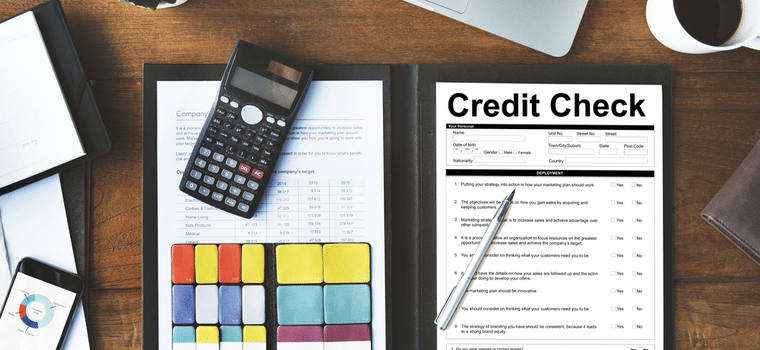The Fair Credit Reporting Act (FCRA) places clear limits on who can check your credit report and for what reasons. In some limited cases, it may be possible to check your credit legally without your permission. Your credit report has a record of everyone who has checked your credit. Check your credit reports regularly. If you see an inquiry you don’t recognize, follow up and identify it. An unauthorized inquiry could be a mistake, but it could also be an early sign of identity theft.
Who Needs Permission to Check My Credit?
If you are applying for a new line of credit, a job, an apartment, or some other transactions, the business you’re dealing with may run a background check to determine your reliability. A credit check may be part of the process.
Credit checks are often required by banks, other lenders, potential or actual employers, landlords, utility companies, and insurance companies. They can only check your credit if you sign a document authorizing the inquiry.
A credit check made with your permission is considered a hard inquiry and will remain on your credit report for up to 2 years. It can be seen by anyone who checks your credit.
Who Can Check My Credit Without Permission?
Some businesses are allowed to make a soft inquiry on your credit report without your permission to determine your eligibility for a pre-approved offer. These checks are considered soft inquiries and do not affect your credit.
The FCRA allows access to your credit without your permission in certain situations. These include:
- An order from a court or a subpoena from a federal grand jury
- If you apply for a license or benefit from the government that requires an assessment of financial responsibility
- In connection with a child support determination, under some circumstances
- If a firm offer of credit or insurance is extended but not initiated by you, under restricted conditions
- If an investor is assessing the risk posed by a current obligation
A credit check that is performed without your permission and outside these conditions is illegal.
What Should I Do If I Spot an Unauthorized Credit Check?
Your credit report will list everyone who has requested your credit report. Check your credit report regularly and review the list of credit checks. Look for any checks that you didn’t authorize.
An unfamiliar inquiry could be from an authorized lender. A car dealer, for example, might contact several lenders to look for the best financing deal and each of them might check your credit. As long as these inquiries are made within a limited time window credit reporting companies will treat them as a single hard inquiry.
An unauthorized inquiry could also be caused by a reporting error or identity theft. You will need to contact the requesting party or the credit reporting company to determine why your credit was checked. If an inquiry that you do not recognize is listed as having been performed with your permission, you may be a victim of identity theft. You may need to place a fraud alert on your account and file an identity theft report with the Federal Trade Commission.
If a hard credit check was performed without your permission, you can file a dispute proceeding to have it removed from your record. You can file a civil suit against the party that made the unauthorized check. You will incur legal expenses and you will need to prove that the request was intentionally made without authorization.
Does a Credit Check Affect My Credit?
Credit reporting companies see hard inquiries as a sign that you may be shopping for credit. That’s considered a risk indicator and hard inquiries can damage your credit. One hard inquiry has a minor influence on your credit. That impact will increase with multiple hard inquiries.
Credit reporting companies understand that you will shop around for the best deal on a loan, so they treat similar inquiries within a limited time as a single inquiry. If you’re shopping for the best rate, try to make all of your inquiries within a 2-week period.
A hard inquiry will remain on your record for up to 2 years, but its impact diminishes after several months. Hard inquiries have a greater impact if you have a short credit history or a limited number of open accounts.
When you check your own credit the request is considered a soft inquiry. Soft inquiries do not affect your credit. Soft inquiries can also be made by credit card or insurance companies that are considering you for pre-qualified offers. Soft inquiries cannot be disputed but are listed on your credit report so you will know who made them.
How Can I Prevent Unauthorized Access to My Credit Report?
There are steps you can take to prevent unauthorized access to your credit report.
- If you are asked to sign a form as part of an application or when you’re negotiating for the purchase of a product or service, read the fine print. Your signature may be authorizing a credit check.
- Soft inquiries do not affect your credit. If you wish to limit them for privacy reasons, you can opt-out of receiving pre-approved offers by calling 1-888-567-8688.
- Checking your credit report regularly will help you keep track of who is looking at your credit. Always investigate unfamiliar checks. They could be a sign of identity theft.
- If you’re concerned about possible unauthorized access, consider a credit monitoring service. You’ll be alerted if anyone checks your credit.
The law protects the privacy of your credit report, but there are still people who may try to gain access to your record. Knowing your rights and keeping track of your records can help you protect your privacy.




